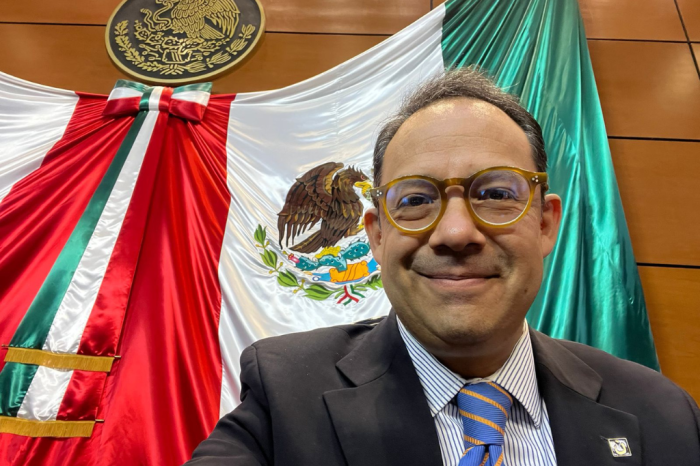Mexican politician convicted of ‘misgendering’ lawmaker appeals to international body

Mexican civil society leader and former congressman Rodrigo Iván Cortés has appealed to the Inter-American Commission on Human Rights following his conviction for "gender-based political violence" over social media posts referring to a trans-identifying lawmaker as a "man who self-ascribes as a woman."
The appeal was filed by the legal nonprofit ADF International last Wednesday. Cortés was convicted in June of referring to trans-identifying Mexican member of Congress Salma Luévano as a "man who self-ascribes as a woman" on platforms like X and Facebook.
"As evidenced by Rodrigo Ivan Cortés' conviction for peaceful expression, and dozens of cases like his, free speech is greatly threatened in Mexico at this time. It is our plea that the Inter-American Commission on Human Rights will admit this case and hold Mexico to its duty to respect the fundamental right to free speech and expression," stated ADF International attorney Kristina Hjelkrem said in a statement.
The Inter-American Commission on Human Rights is an autonomous organ of the Organization of American States. The complaint against Cortés centers on nine social media posts, alleging a violation of Luévano's right to be acknowledged as a woman and a denial of identity.
Cortés, charged solely because Luévano is a sitting member of Congress, faced a failed appeal in Mexico's Electoral Superior Chamber, leading to the international appeal.
The conviction resulted in a fine equivalent to $1,123 and a requirement for Cortés to publish a court-written apology as well as the ruling on his social media account daily for 30 days. Cortés must also enroll in a "gender-based political violence" course and enter into the National Registry of Persons Sanctioned in Political Matters against Women.
"Disagreement is not discrimination, and peaceful dissent is not violence," Hjelkrem said. "Cortés spoke out, peacefully, in support of self-evident truth, and for that, he has been convicted as a violent offender and subjected to onerous punishments. The Mexican government's continued censorship of its citizens violates their international human rights obligations to uphold freedom of speech."
Upon the filing, Cortés expressed a commitment to defending freedom of speech in Mexico and his anticipation of a decisive ruling from the IACHR.
"Peacefully expressing the truth of biological reality can never be a crime, and the government of Mexico must not be allowed to punish individuals for sharing their convictions," he said. "I am hopeful for the day that all Mexicans can freely speak without fear of being silenced."
The case raises concerns about due process and judicial impartiality, ADF International, which specializes in religious freedom cases, stresses.
Cortés, head of the advocacy group Frente Nacional por la Familia, was initially convicted by a lower court for his social media posts. The impartiality of the higher court's ruling, expected in June 2023 but delayed, came into question following a publicized closed-door meeting between Judge Felipe Barrera and Luévano.
Evidence of inappropriate meetings and communications between two of the five judges and Luévano further complicated the case, leading to allegations of a breach of Cortés' right to a fair trial.
In September 2022, the FNF expressed concerns over a bill presented by Luévano, which they view as violating freedom of speech and religious freedom. The bill, ADF International claims, would penalize Christian teachings on sexuality as "hate speech."
Luévano, along with trans-identifying representative María Clemente, has been involved in several high-profile incidents in Mexico's Congress, including physical altercations and the sharing of explicit content on digital platforms.
Cortés' situation parallels that of Mexican Congressman Gabriel Quadri, who faced similar charges for Twitter posts following a complaint by Luévano. Quadri is also seeking justice at the IACHR.




























